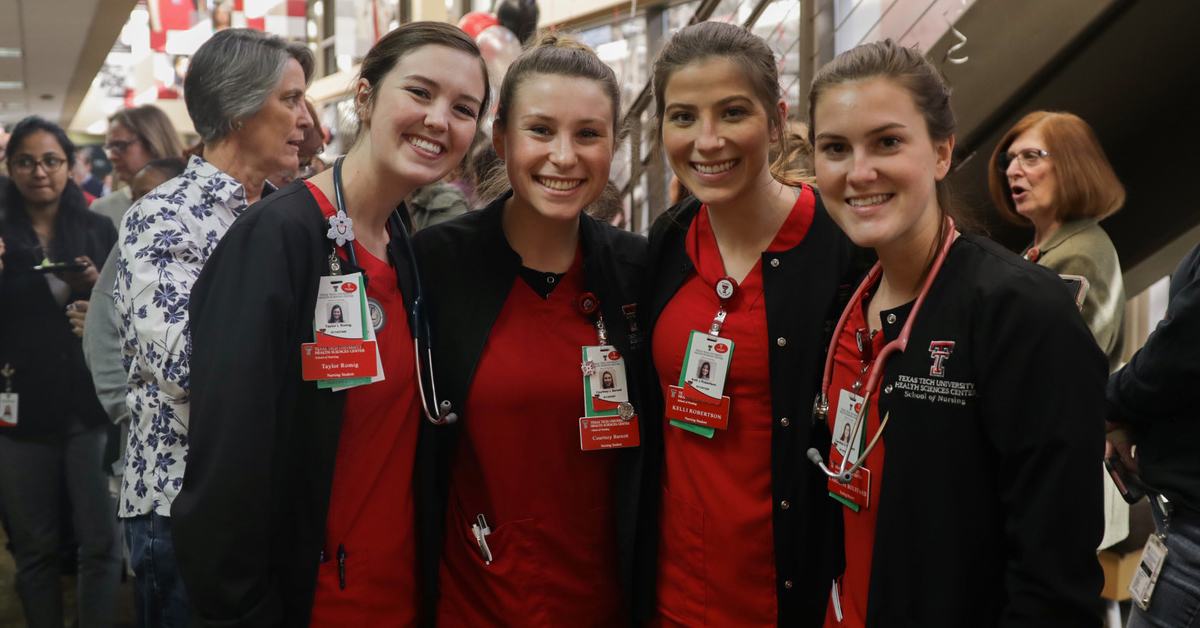
Former Gov. Preston Smith had a vision of providing more physicians to the West Texas area. Now 50 years later, Texas Tech University Health Sciences Center (TTUHSC) will celebrate the milestone beginning with a 50th Anniversary announcement at 3 p.m. Friday (Jan. 25) at the TTUHSC Academic Classroom Building foyer, 3601 Fourth St.
On May 27, 1969, Smith signed House Bill 498 creating the Texas Tech University School of Medicine as a multi-campus institution with Lubbock as the administrative center and campuses in Amarillo, El Paso and Odessa. At that time professionals and hospitals were scarce: 19 of the counties surrounding Lubbock had no physicians; the area had only one-third of the national physicians-to-patients ratio and 23 of the surrounding counties had no hospital.
Ten years later, the state expanded the charter forming Texas Tech University Health Sciences Center. Through the years, TTUHSC has expanded to include the Schools of Health Professions, Nursing, Pharmacy and Graduate School of Biomedical Sciences as well as added campuses in Abilene, Midland and Dallas-Fort Worth.
Today, TTUHSC has graduated more than 28,000 health care professionals. Of those, 24 percent remain in the 108-county service area.
Texas Tech University System Chancellor and TTUHSC President Tedd L. Mitchell, M.D., said from the beginning TTUHSC was entrusted with a singular charge – to teach the next generation of health care professionals while simultaneously providing the people of West Texas with world-class patient care.

“We have positioned our university as a leader in preparing health care professionals to meet the demands of the ever-changing health care environment – whether that be in a classroom, clinic or lab,” Mitchell said.
Steven Berk, M.D., TTUHSC executive vice president and provost and School of Medicine dean, said the early TTUHSC pioneers who saw the need to train physicians for West Texas would be proud of TTUHSC’s 50 years of progress.
“Now 400 physicians make up the Texas Tech Physicians group, the largest clinical practice in West Texas,” Berk said. “The School of Medicine graduates 180 students per year who are trained on four different campuses, and has been ranked nationally with top ratings in student satisfaction and one of the lowest tuitions in the country. The innovative Family Medicine Accelerated Track has helped guarantee an increasing number of much needed family medicine physicians for the area. Additional patient care involves collaborative programs with all schools. All are examples of why TTUHSC has become well-known for the value of its educational program.”
Mitchell said while it is difficult to assign a dollar amount to the value of health care, TTUHSC has increased the economic output by over $1.89 billion across Texas in 2017 alone.
“Access to health care is key for any community to grow,” Mitchell said. “Here in West Texas, keeping people healthy means so much more. These are the folks that produce the food, fiber and fuel for our entire nation. We are extremely proud to be providing health care, and improving that care through research, for those who are working hard to keep these powerful economic drivers in motion.”
Mitchell said TTUHSC continues to build excitement with new facilities that will bring additional opportunities for education and research initiatives plus create a more seamless campus experience for students and visitors. The $99.375 million project consisted of three parts: a north expansion that will create two new buildings north of TTUHSC, a west expansion that will add additional facilities to the existing TTUHSC building and the creation of a boulevard entrance to campus for accessibility.
“For 50 years, TTUHSC has been quietly transforming into a leader in health-related higher education,” Mitchell said. “But, we’re just getting started.”
[Editor’s Note: A Media Tool Kit is available at http://fifty.ttuhsc.edu/ with historic photos, video and timeline.]
